Pledges of Human Rights Council Candidates vs. the Reality – 2021
According to the UN General Assembly resolution that created the Council (A/RES/60/251, adopted March 15, 2006): "when electing members of the Council, Member States shall take into account the contribution of candidates to the promotion and protection of human rights and their voluntary pledges and commitments made thereto;"
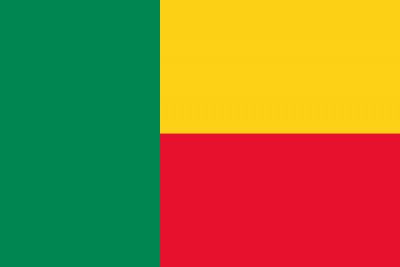 BENIN
BENIN
- NO PLEDGE SUBMITTED
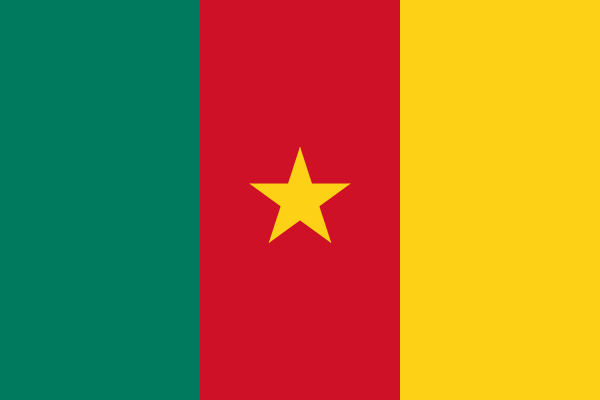 CAMEROON
CAMEROON
- "Cameroon, deeply committed to promoting and protecting human rights at the
national, regional and international levels...Cameroon is relentlessly striving towards strengthening the
protection and promotion of civil and political rights: by organizing transparent and
democratic elections, implementing decentralization, arresting and prosecuting law
enforcement officials guilty of human rights violations, improving on detention
conditions and organizing human rights awareness-raising campaigns."
(Voluntary pledge for candidacy to Human Rights Council - Cameroon, A/76/280)
- "Significant human rights issues included: unlawful or arbitrary killings, including extrajudicial killings by security forces...; forced disappearances by security forces; torture and cases of cruel, inhuman, or degrading treatment or punishment by the government, Cameroonian peacekeepers deployed to UN missions, and nonstate armed groups; harsh and life-threatening prison conditions; arbitrary arrests; political prisoners or detainees; politically motivated reprisal against individuals located outside the country; serious problems with the independence of the judiciary; arbitrary or unlawful interference with privacy; serious restrictions on freedom of expression, the press, and the internet, including violence, threats of violence, or unjustified arrests or prosecutions against journalists, censorship, and criminal libel laws; substantial interference with the right of peaceful assembly and freedom of association; serious restrictions on freedom of movement; inability of citizens to change their government peacefully through free and fair elections; restrictions on political participation; serious acts of corruption; lack of investigations and accountability for violence against women; unlawful recruitment or use of child soldiers; trafficking in persons; crimes involving violence or threats of violence targeting lesbian, gay, bisexual, transgender, or intersex persons; and the existence or use of laws criminalizing same-sex sexual conduct between adults."
(Country Reports on Human Rights Practices Cameroon 2020, U.S. Department of State)
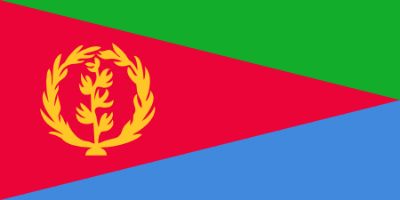 ERITREA
ERITREA
- "Eritrea is a safe, peaceful and stable nation with remarkable harmony among its
diverse population. Its evolving political system seeks to foster the broadest possible
participation of its citizens at home and abroad, at all levels and in all of the nation’s
affairs. In addition, Eritrea is working to build a justice system based on a body of
laws, including the supreme law of the land."
(Voluntary pledge for candidacy to Human Rights Council - Eritrea, A/76/326)
- "Eritrea is a highly centralized, authoritarian regime... The country experienced significant adverse changes in its human rights situation after, according to credible reports, it intervened in the conflict in Tigray, Ethiopia, that began in November. There are credible reports of Eritrean soldiers engaging in unlawful and arbitrary killings in Tigray. There are also reports of Eritrean soldiers engaging in forced disappearance and forced repatriation of Eritrean refugees from Tigray. Significant human rights issues included: unlawful and arbitrary killings, forced disappearance; torture; and arbitrary detention, all committed by the government; harsh and life-threatening prison and detention center conditions; political prisoners; serious problems with judicial independence; arbitrary or unlawful interference with privacy; the worst forms of restrictions on free expression and the press, including censorship and the existence of criminal libel laws; substantial interference with the rights of peaceful assembly and freedom of association; severe restrictions on religious freedom; widespread restrictions on freedom of movement; inability of citizens to change their government peacefully through free and fair elections; restrictions on political participation; trafficking in persons; criminalization of consensual same-sex sexual conduct; and the worst forms of child labor."
(Country Reports on Human Rights Practices Eritrea 2020, U.S. Department of State)
 GAMBIA
GAMBIA
- NO PLEDGE SUBMITTED
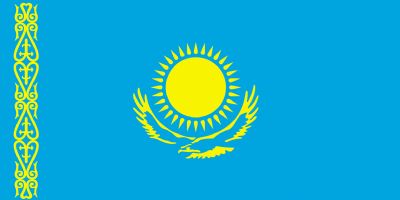 KAZAKHSTAN
KAZAKHSTAN
- "Upholding universal human rights has been a priority commitment of
Kazakhstan since the inception of its statehood, soon after which the country joined
the Universal Declaration of Human Rights, the International Covenant on Civil and
Political Rights, the International Covenant on Economic, Social and Cultural Rights
and other relevant United Nations human rights conventions. Comprehensive national
legislation was adopted in keeping with the highest international standards, and
Kazakhstan has seen their realization by working very closely with the entire United
Nations system."
(Voluntary pledge for candidacy to Human Rights Council - Kazakhstan, A/76/86)
- "Security forces committed abuses. Significant human rights issues included: unlawful or arbitrary killing by or on behalf of the government; torture by and on behalf of the government; political prisoners; problems with the independence of the judiciary; restrictions on free expression, the press, and the internet; interference with the rights of peaceful assembly and freedom of association; restrictions on political participation; corruption; trafficking in persons; and restrictions on workers’ freedom of association."
(Country Reports on Human Rights Practices Kazakhstan 2020, U.S. Department of State)
 MALAYSIA
MALAYSIA
- "Malaysia’s bid to be elected as a member of the Human Rights Council for the
period 2022–2024 reflects the country’s determination to continue to make progress
in its efforts to protect and promote human rights, both domestically and
internationally. Malaysia looks forward to engaging constructively as a Council
member and to actively contributing towards human rights advancement for all."
(Voluntary pledge for candidacy to Human Rights Council - Malaysia, A/76/83)
- "Significant human rights issues included: reports of unlawful or arbitrary killings by the government or its agents; reports of torture and cases of cruel, inhuman, or degrading treatment or punishment by the government; harsh and life-threatening prison conditions; arbitrary detention; problems with the independence of the judiciary; arbitrary or unlawful interference with privacy; restrictions on free expression, the press, and the internet, censorship, site blocking, and criminal libel laws; substantial interference with the rights of peaceful assembly and freedom of association; restrictions on and intolerance of religious freedom; restrictions on freedom of movement; serious acts of corruption; lack of investigation of and accountability for violence against women; trafficking in persons; violence against transgender persons; criminalization of consensual adult same-sex sexual activities; and child labor."
(Country Reports on Human Rights Practices Malaysia 2020, U.S. Department of State)
 QATAR
QATAR
- "Respecting, promoting and protecting human rights is a policy priority for Qatar.
We are mindful that human rights, peace and security are interdependent and mutually
reinforcing.
That priority is reflected in a constitutional and legislative system that embodies
the principles of human rights and fundamental freedoms, and respects and protects
everyone. In institutional terms, it is reflected in a range of human rights institutions
and agencies that contribute effectively to the promotion and protection of human
rights.
Respecting, protecting and promoting human rights is a strategic choice
underpinning the Government’s comprehensive reform process. Human development
and the protection and promotion of human rights are at the forefront of the country’s
priorities."
(Voluntary pledge for candidacy to Human Rights Council - Qatar, A/76/67)
- "Significant human rights issues included: restrictions on free expression, including criminalization of libel; restrictions on peaceful assembly and freedom of association, including prohibitions on political parties and labor unions; restrictions on migrant workers’ freedom of movement; limits on the ability of citizens to choose their government in free and fair elections; lack of investigation of and accountability for violence against women; criminalization of consensual same-sex sexual conduct; and reports of forced labor."
(Country Reports on Human Rights Practices Qatar 2020, U.S. Department of State)
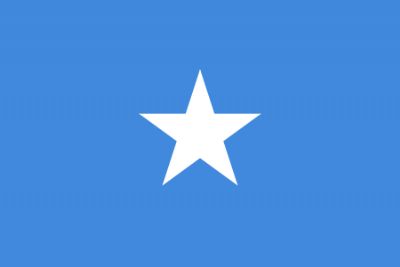 SOMALIA
SOMALIA
- NO PLEDGE SUBMITTED
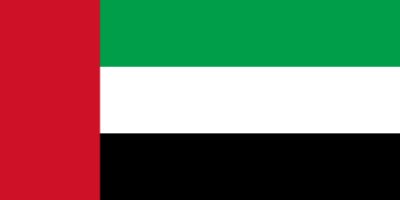 UNITED ARAB EMIRATES
UNITED ARAB EMIRATES
- "The United Arab Emirates is committed to promoting and protecting human
rights at the national level. The United Arab Emirates continuously seeks to improve
and develop its record in this field by working diligently to enshrine its deep
commitment to promoting and respecting human rights and fundamental freedoms. In
addition, the United Arab Emirates strives to achieve equality and social justice
through continued efforts to build the rule of law, foster the principles of good
governance and develop its institutional structures in line with its priorities and
aspirations and taking into account international standards."
(Voluntary pledge for candidacy to Human Rights Council - United Arab Emirates, A/76/95)
- "Significant human rights issues included: torture in detention; arbitrary arrest and detention, including incommunicado detention, by government agents; political prisoners; government interference with privacy rights; undue restrictions on free expression and the press, including criminalization of libel, censorship, and Internet site blocking; substantial interference with the rights of peaceful assembly and freedoms of expression and association; the inability of citizens to choose their government in free and fair elections; and criminalization of same-sex sexual activity, although no cases were publicly reported during the year. The government did not permit workers to freely associate, bargain collectively, or join independent unions and did not effectively prevent physical and sexual abuse of foreign domestic servants and other migrant workers."
(Country Reports on Human Rights Practices United Arab Emirates 2020, U.S. Department of State)
